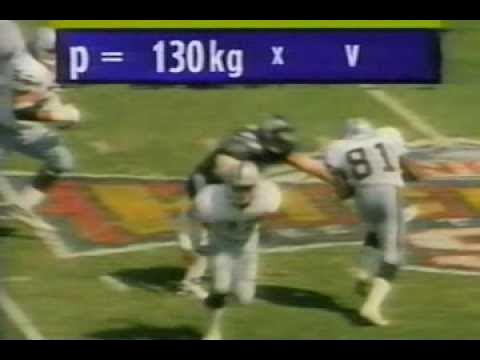THE POWER OF NAMES AND NAMING: It's not pronounced "Pay-dro"! (Bucholtz 2016)
Summary
TLDRIn this video, Mike explores the concept of 'indexical bleaching' through the lens of name mispronunciation, particularly in educational settings. Using examples from pop culture and real-life experiences, he discusses how misnaming, especially of students with ethnic names, can strip away cultural identity and power. The discussion highlights the subtle dynamics of linguistic violence and how names carry deep social meanings that are often overlooked. The video underscores the importance of recognizing and respecting the cultural significance of names in diverse social contexts.
Takeaways
- 😀 The script discusses the phenomenon of teachers mispronouncing students' names, particularly those perceived as foreign or difficult.
- 🎓 It references a comedy sketch to highlight the humor and irony when a black teacher mispronounces white students' names, which is a reversal of common situations.
- 🗣️ The author, Mary Buckles, introduces the concept of 'indexical bleaching' as a technique of de-racialization, where names are anglicized to strip them of ethno-racial meanings.
- 👨🏫 The chapter emphasizes that misnaming can position students as powerless or deviant in the classroom, affecting their sense of identity and belonging.
- 🏫 The practice is particularly prevalent in the United States among white English-speaking teachers, who often feel no obligation to accurately pronounce non-English names.
- 🌐 'Indexical' refers to a sign that points to something, and names can be indexical, carrying meanings related to gender, ethnicity, culture, and more.
- 🔄 The renaming or misnaming of students can be seen as a form of linguistic violence, where the power dynamics in the classroom are made visible.
- 👥 The script also points out that misnaming is not limited to white teachers but can be perpetuated by anyone in a position of power, regardless of their racial or ethnic background.
- 🌟 Correct pronunciation of names can be affirming and empowering, as illustrated by the author's personal experience of having his last name correctly pronounced after years of mispronunciation.
- 🌱 The chapter suggests that the normalization of misnaming can lead to a cycle where students internalize these power dynamics, accepting misnaming as a standard part of their educational experience.
Q & A
What is the main topic discussed in the chapter by Mary Buckles?
-The main topic discussed is the practice of 'indexical bleaching' as a technique of de-racialization, particularly in the context of teachers mispronouncing students' names, especially those perceived as foreign or difficult.
How does the comedy sketch from 'Key & Peele' relate to the chapter's topic?
-The sketch inverts the usual power hierarchy by featuring a black teacher mispronouncing white students' names, which highlights the common occurrence of misnaming in real life and makes the audience reflect on why it's not funny when it happens the other way around.
What is 'indexical bleaching' in the context of this chapter?
-Indexical bleaching refers to the practice of anglicizing the names of Latinx students with Spanish language names, often stripping away the cultural and ethnic meanings associated with the original pronunciation.
What is an 'indexical' or 'index' in semiotics?
-An indexical or index is a sign that points to something, indicating a meaning or a set of meanings. It's a concept used in semiotics to describe how certain signs can represent or refer to other things.
How can names potentially index meanings beyond the individual they refer to?
-Names can index meanings such as gender, nationality, ethnicity, formality, and more, depending on the context and the person interpreting the name.
Why is the correct pronunciation of a name important according to the chapter?
-The correct pronunciation of a name is important because it can index a person's identity, heritage, and culture. Mispronouncing or changing a name can be seen as a form of linguistic violence, stripping away parts of a person's identity.
What is the concept of 'linguistic violence' as mentioned in the chapter?
-Linguistic violence refers to the act of misnaming or renaming someone in a way that can make them feel powerless or inferior, often used to assert dominance or control over someone.
How does the chapter illustrate the power dynamics involved in misnaming?
-The chapter uses the example of a teacher mispronouncing a student's name in a classroom setting to show how names can be a site of power struggle, especially when there is a significant difference in social positions between the individuals involved.
What are the implications of misnaming for Latinx students in U.S. public schools as discussed in the chapter?
-Misnaming can lead to feelings of powerlessness and invisibility for Latinx students, as well as a sense of not belonging or being an outsider in their educational environment.
How does the author suggest that misnaming can be resisted or addressed?
-The author implies that misnaming can be resisted by recognizing it as a form of linguistic violence and by advocating for the correct pronunciation and recognition of names as an act of respect and acknowledgment of one's identity.
Outlines

Cette section est réservée aux utilisateurs payants. Améliorez votre compte pour accéder à cette section.
Améliorer maintenantMindmap

Cette section est réservée aux utilisateurs payants. Améliorez votre compte pour accéder à cette section.
Améliorer maintenantKeywords

Cette section est réservée aux utilisateurs payants. Améliorez votre compte pour accéder à cette section.
Améliorer maintenantHighlights

Cette section est réservée aux utilisateurs payants. Améliorez votre compte pour accéder à cette section.
Améliorer maintenantTranscripts

Cette section est réservée aux utilisateurs payants. Améliorez votre compte pour accéder à cette section.
Améliorer maintenantVoir Plus de Vidéos Connexes

Ilha das Flores

Guru Virtual: Analisis Kesalahan Berbahasa #6 Kesalahan Berbahasa Tataran Morfologi #1

Running with Momentum

"Mengidentifikasi Identitas Individu dan Identitas Kelompok" [Pendidikan Pancasila]

WHAT IS LOVE according to the BIBLE??

Equity According to the Concept of Equity Based Development
5.0 / 5 (0 votes)
